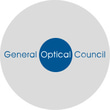- OT
- Professional support
- Optical organisations
- “There is a feeling of optimism”
Perspectives
“There is a feeling of optimism”
The General Optical Council is committed to finding ways to be more agile and responsive in the face of adversity, explains Marcus Dye

02 June 2021
As we begin to move towards a ‘new normal,’ we have been reflecting at the General Optical Council (GOC) about how we’ve responded to the COVID-19 pandemic, and what changes might be here to stay going forward.
Early on in the pandemic, we received many queries from registrants looking to us for advice and guidance. As an independent regulator, we were able to support registrants by removing any unnecessary regulatory barriers to the provision of clinical care, in line with government guidance, and to clarify any ambiguity in our legislation or rules.

Internally, there were adjustments we had to make quite quickly, including closing the GOC office and delivering our work remotely, in line with government guidance. We also moved our fitness to practise hearings online, which was a first, and subsequently published guidance on remote hearings, including a guide for witnesses.
It would have also been beneficial to have a ‘go-to’ list of partners for an emergency like this and this is something we will implement for future emergencies
Due to the fact there were a lot of unknowns in the beginning, we had to do our best to be quick on our feet and there were some things we had to learn along the way. One of these things was that it is possible to achieve rapid consultation with key stakeholders during emergency situations, including professional and representative bodies, NHS, employers and national commissioners, and that change can be developed and implemented in much shorter timescales than previously thought.
We also learned that we needed to work extremely closely with sector partners from the very beginning. Although we did this early on, we acknowledge that it could have been sooner. It would have also been beneficial to have a ‘go-to’ list of partners for an emergency like this and this is something we will implement for future emergencies.
Much is still unknown
The pandemic highlighted to us that we need to do more to better inform registrants about our role and what we do. Some of the questions we received were outside of our remit and due to this lack of understanding, a couple of petitions were started calling for us to stop routine eye tests. This is not something that is within our role or powers and we will continue to work to educate our registrants and the public about what we do.Because we had to provide guidance so quickly, we weren’t able to consult with the wider sector on our COVID-19 statements. To ensure everyone had the chance to share their views, we held a consultation which sought feedback on the proposal to align our statements to the College of Optometrists’ traffic light system so that we can make it clearer when they will apply going forward.
From the consultation responses, most registrants are supportive of the content in our statements and how we propose they will apply going forward in line with the College’s traffic light system
We also asked for views on whether any of our statements should be policy positions or become part of our Standards of Practice beyond the pandemic. We commissioned Enventure Research to analyse the responses and produce a consultation report and we are currently considering our response, which we will share in due course.
From the consultation responses, most registrants are supportive of the content in our statements and how we propose they will apply going forward in line with the College’s traffic light system. We will be using this insight going forward to inform our decisions as we move towards a ‘new normal.’
With the Government proceeding with its route out of lockdown, there is a feeling of optimism – although much is still unknown about how the pandemic will continue to progress. One thing we do know is that we can be more agile and responsive in the face of adversity, and will be much better prepared for any future pandemic scenario, to always ensure we fulfil our role of protecting the public.


Comments (0)
You must be logged in to join the discussion. Log in